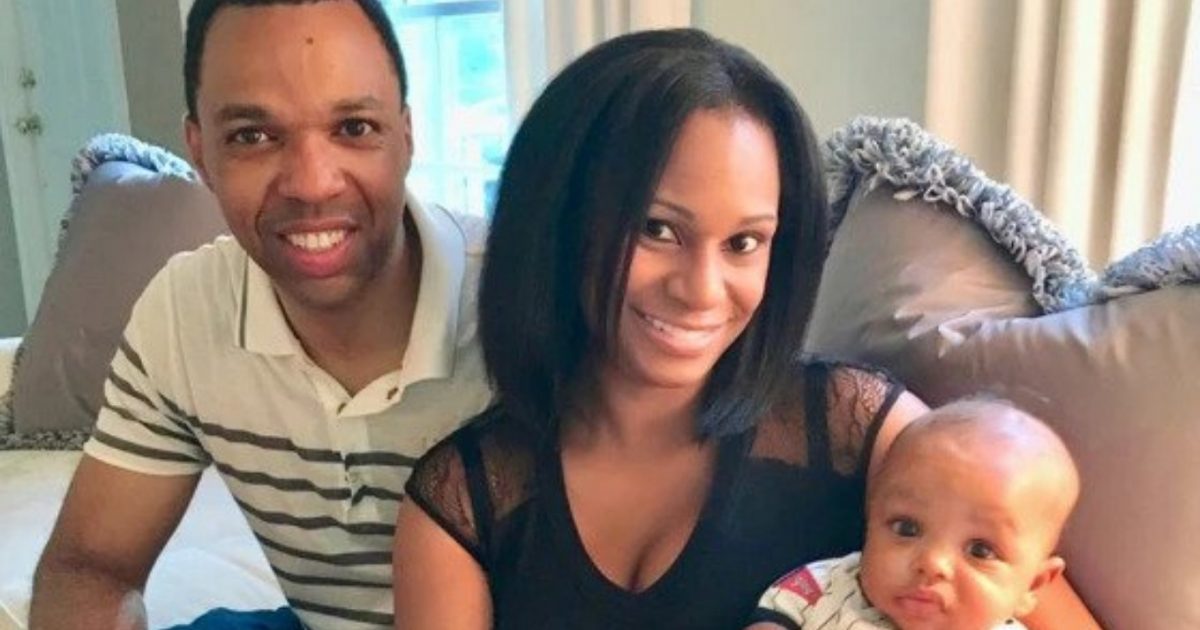Pushing For More Funding After A Heartbreaking Battle
- CNN reporter Rene Marsh has written about her son Blake’s battle with brain cancer in a new essay for Today. In it, she vividly describes the heartbreak and anxiety that come with receiving the worst possible news.
- Marsh is pushing for more federal funding to research pediatric cancers, saying drugs used to treat adults can often be harmful to children.
- Only four per cent of federal cancer research funding currently goes to childhood cancers.
In an essay written for Today, Rene Marsh opened up about what happened when her first child, Blake, was taken to the emergency room at just nine months old just a day before his first Christmas in 2019.
Read MoreAn X-ray showed the boy’s heart was enlarged. Soon after, his oxygen levels dropped and a code blue was called.
"I'd never seen anything like it. A loud alarm sounded and within seconds our room was flooded with nurses and ICU doctors. A sonogram revealed fluid was building around Blake's heart. He was rushed to the intensive care unit, where they planned to drain the fluid. That’s where Blake went into cardiac arrest," wrote Marsh.
Another code blue was called and Marsh watched as the medical team tried to restart her son’s heart and managed to connect him to ECMO, a machine that re-oxgynates blood.
Blake recovered after six days, but it was soon found that the chemotherapy drugs had triggered the terrible reaction.
"The treatment protocol that second, third and fourth opinions all suggested was Blake's ‘best chance of survival’ nearly killed him and ultimately did not cure him," wrote Marsh.
Months later, Blake’s battle came to a sad end. Now, his mother is trying to raise word about the challenges that many pediatric oncology patients face.
"Young cancer patients can suffer toxicities and chronic side effects from the drug treatments intended to cure them. This is because many childhood cancer patients are receiving chemotherapy drugs that were developed and approved for adults decades ago," wrote Marsh. "Children are often forced to rely on adult cancer drugs that destroy both cancer cells and healthy cells in their developing bodies. This is in large part because the profit-driven pharmaceutical industry has not prioritized the research and development of cancer drugs specifically for children. Children represent a smaller portion of the market compared to adults, so developing pediatric cancer drugs are less lucrative for the industry."
According to Marsh, only four per cent of federal cancer funding is steered towards pediatric research.
Marsh is also trying to use the tragedy her family faced by raising money for pediatric brain cancer research. She recently wrote a children’s book, The Miracle Workers: Boy vs. Beast, with all proceeds going to that cause.
Advocating For A Child With A Pediatric Cancer
Here at SurvivorNet, we always encourage people to advocate for themselves when it comes to cancer and, more generally, health care. When it comes to a child, the parent must become the advocate.
The Impact of a Childhood Cancer Diagnosis on the Whole Family Jayne Wexler Shares Her Story
And even if you're called 'pushy' or people dismiss the concerns you have for your child, it's important to remember that you never know when speaking up about a seemingly unproblematic issue can lead to a very important diagnosis cancer or otherwise.
"Every appointment you leave as a patient, there should be a plan for what the doc is going to do for you, and if that doesn't work, what the next plan is," Dr. Zuri Murell, director of the Cedars-Sinai Colorectal Cancer Center, told SurvivorNet in a previous interview. "And I think that that's totally fair. And me as a health professional that's what I do for all of my patients."
Learn more about SurvivorNet's rigorous medical review process.

